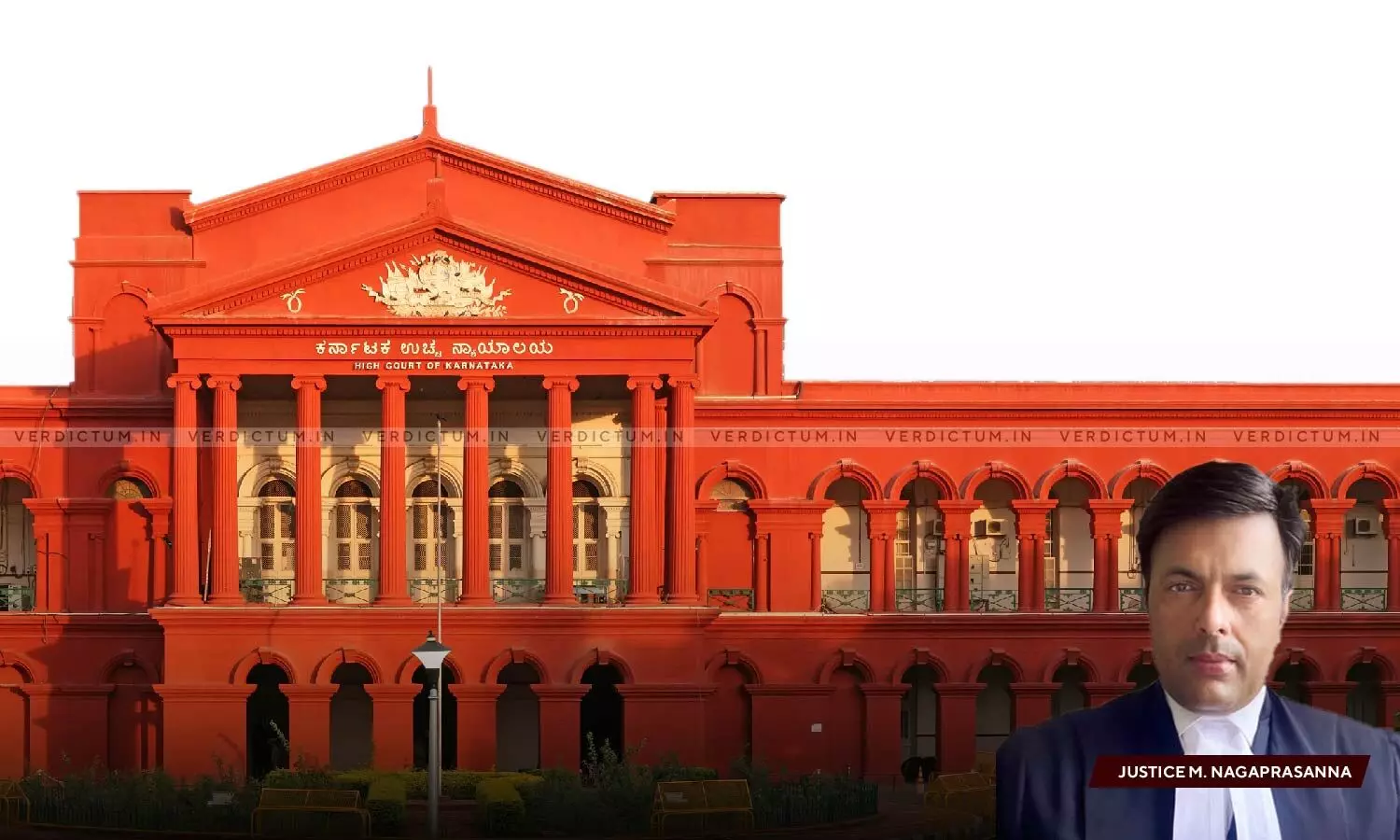
Justice M. Nagaprasanna, Karnataka High Court
Additional Evidence Under Section 391 CrPC Permissible Only In Exceptional And Rare Circumstances: Karnataka High Court
 |
|The Court said that the power to secure additional evidence under Section 391 of the CrPC should be exercised in rare and exceptional cases, and only when the party was prevented from presenting the evidence in the trial despite due diligence.
The Karnataka High Court has held that the power to record additional evidence under Section 391 of the Code of Criminal Procedure, 1973 (CrPC) should only be exercised when the party making such request was prevented from presenting the said evidence in the trial, despite due diligence, and only in exceptional and rare cases.
A Single Bench of Justice M. Nagaprasanna observed, “…that power to record additional evidence under Section 391 of the Cr.P.C. should only be exercised when the party making such request was prevented from presenting the said evidence in the trial, despite due diligence. In the case at hand, the petitioner makes an attempt to get those documents, it is rejected, the rejection has become final. The same relief is now sought in the appellate stage.”
The Court added, “This Court, cannot but infer that it is only a ruse to drag the proceedings further. Though the concerned Court has the power to secure additional evidence under Section 391 of the Cr.P.C., it is as observed by the Apex Court and other Courts, to be exercised in rare and exceptional cases…such rare or exception case is not the one that is projected by the petitioner.”
Advocate B. Siddeshwara represented the Petitioner, while Senior Advocate Sandesh J Couta appeared for the Respondent.
Brief Facts
The Petitioner was convicted by the Trial Court for an offence under Section 138 of the Negotiable Instruments Act, 1881 (NI Act). The conviction arose from a transaction between the Petitioner and the Respondent, wherein certain cheques issued by the Petitioner were dishonoured. The Petitioner had earlier filed an application under Section 91 of the CrPC before the Trial Court seeking the production of specific documents. However, the Trial Court rejected the Petitioner’s application. Thereafter, the Petitioner filed an appeal and again sought the same documents by filing an application under Section 391(1) of the CrPC, which was also rejected. Aggrieved, the Petitioner approached the High Court.
The Petitioner contended that Section 391 CrPC empowered the Appellate Court to permit additional evidence at any stage of the proceedings, and that the documents sought were vital and material to prove his innocence, and that denial of such opportunity would lead to injustice.
The Respondent submitted that the power under Section 391 CrPC is not absolute and is to be exercised only in exceptional cases.
Reasoning of the Court
The Court noted that power to record additional evidence under Section 391 of the CrPC should only be exercised when the party making such request was prevented from presenting the said evidence in the trial, despite due diligence.
The Court referred to the decision of the Supreme Court in Ajitsinh Chehuji Rathod v. State of Gujarat (2024) wherein it had been held that power to record additional evidence under Section 391CrPC should only be exercised when the party making such request was prevented from presenting the evidence in the trial despite due diligence being exercised or that the facts giving rise to such prayer came to light at a later stage during pendency of the appeal and that non-recording of such evidence may lead to failure of justice.
The Court added, “In the case at hand, the petitioner makes an attempt to get those documents, it is rejected, the rejection has become final. The same relief is now sought in the appellate stage.”
The Court observed that the Petitioner was playing a ruse to drag the proceedings. The Court added that even though it had the power to secure additional evidence under Section 291 of the CrPC, it could only be exercised in exceptional and rare cases, and the present case was not one.
Consequently, the Court rejected the petition, being devoid of any merit.
Cause Title: J. Ramesh v. M/S Lakshmi Precious Jewellery Pvt. Ltd. (Criminal Petition No.12045 of 2024)
Appearance:
Petitioner: Advocate B. Siddeshwara
Respondent: Senior Advocate Sandesh J Couta; Advocate Hanumanthappa A.